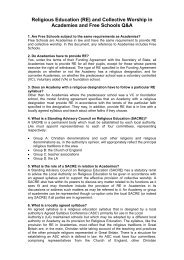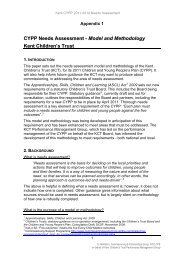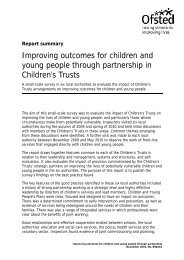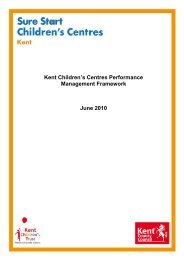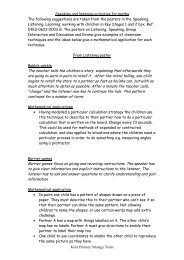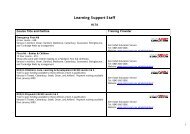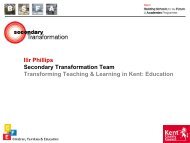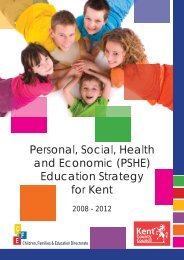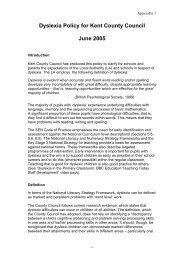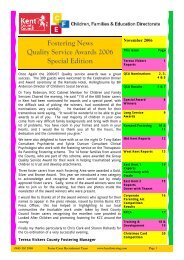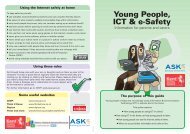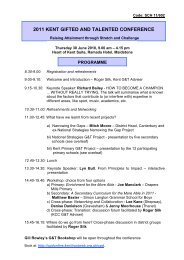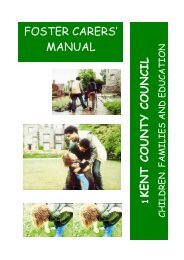Key Stage 1 - Kent Trust Web
Key Stage 1 - Kent Trust Web
Key Stage 1 - Kent Trust Web
Create successful ePaper yourself
Turn your PDF publications into a flip-book with our unique Google optimized e-Paper software.
It is important to note that the Teacher Assessed level awarded to a pupil is based on a ‘best fit’ model that<br />
takes account of a pupil’s achievements across a broad range of work, not a single task.<br />
KEY STAGE 2 WRITING MODERATION 2013<br />
Purpose of the Moderation Process<br />
<strong>Kent</strong> has a statutory duty to ensure the end of <strong>Key</strong> <strong>Stage</strong> assessments take place, that the tests are<br />
correctly administered, and that judgments are fair and consistent. The purpose of the writing moderation<br />
is to ensure that teacher assessment is accurate and consistent with national standards.<br />
<strong>Kent</strong> is required by the Standards and Testing Agency (STA) to moderate a sample size of schools for<br />
writing. These visits will be carried out by experienced school-based moderators.<br />
Writing Moderation Visits<br />
LAs are required on behalf of STA to carry out a programme of moderation visits during the academic<br />
year. The purpose of these visits is to ensure that teacher judgements in Year 6 are accurate and<br />
consistent with national standards.<br />
Schools on the list from the Standards and Testing Agency (STA): will receive a writing moderation visit<br />
between 15 th April and 22 nd June. Schools will be informed of a moderation visit no more than two weeks in<br />
advance, so they can make any necessary arrangements, including ensuring the availability of staff to talk<br />
to the visiting moderator.<br />
The moderation visit will be carried out by a school-based colleague who works in a different district. This<br />
may involve:<br />
• Discussion with the Headteacher/Assessment Co-ordinator/Year 6 teacher about the process of the<br />
moderation visit.<br />
• Discussion with Year 6 teachers relating to the ways they have reached their Teacher Assessments<br />
including, where appropriate, the steps taken to ensure consistent assessments across parallel<br />
classes.<br />
• Discussion with a senior colleague with oversight of assessment within the school to gain an insight into<br />
the steps the school has taken to ensure consistency of judgement about pupils’ work from Year 5 to<br />
Year 6, and from Year 6 to Year 7.<br />
• Scrutiny of pupils’ written work from September onwards (eg: exercise books, “finished” and<br />
“rough/draft” work, writing across a range of genre and in other subjects, such as history and<br />
geography, project-based work), together with any outcomes of the tests already undertaken. See<br />
Appendix A for suggested range of writing evidence.<br />
8



